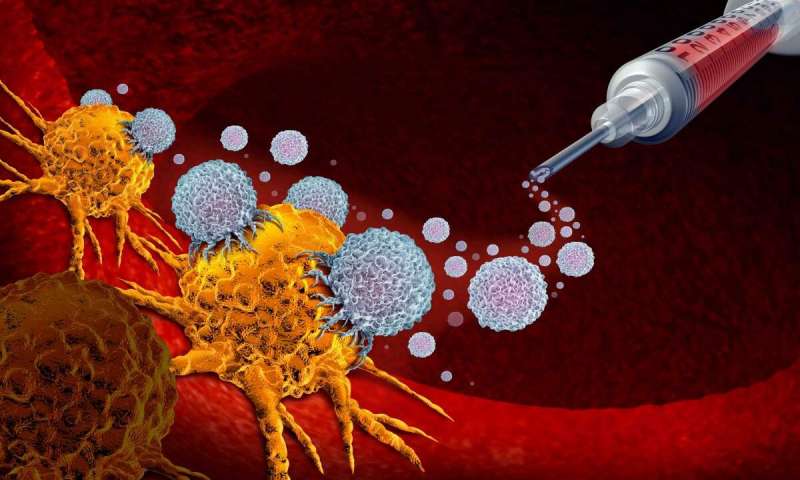About Treatment
Cancer immunotherapy includes a number of treatments. This treatment method allows to detect the attack of tumor cells. In recent years, immunotherapy has become an integral part of the course of treatment for certain types of cancer, especially in cases where other methods are powerless.
Types of Immunotherapy
Immunotherapy methods that help the immune system fight certain types of tumor cells:
Monoclonal Antibodies
These are artificially synthesized antibodies (proteins of the immune system) that are able to connect to specific targets (antigens) on the surface of cancer cells. Thus, monoclonal antibodies “label” tumor cells so that the immune system can detect them.
Immune Response Checkpoint Inhibitors
These drugs activate the immune system and direct it to fight the tumor.
Adaptive Cell Transfer
This treatment enhances the natural ability of white blood cells to destroy cancer. As part of this procedure, active T cells are collected. Then they are modified or prepared in laboratory with subsequent return back to patient. Therapy with CAR-T cells is a type of adoptive cell transfer.
Cancer Vaccine
A special vaccine is applied to patient to optimize the immune response in case of an existing cancer or to prevent tumor growth. When used as part of a vaccination, immunotherapeutic drugs are often combined with other types of therapy. Today, new experimental vaccines are being tested for the treatment of other types of oncology, such as melanoma, leukemia, cancer of the brain, breast, kidney, etc.
-
Indications
Melanoma
Kidney cancer
Non-small cell lung cancer
Head and neck cancer
Urothelial carcinoma
-
Scheme of Immunotherapy
Usually immunotherapy drugs are applied intravenously every 2-4 weeks.
-
Immunomodulating Drugs in Oncology
Pembrolizumab
Rituximab
Ipilimumab
Nivolumab
Atezolizumab
Bevacizumab
Basic understanding of immunology will help you understand how immunotherapy works. The immune cells and the substances they produce circulate in the human body and protect it from various microorganisms that can lead to infectious diseases. The immune system identifies foreign agents, attacks and destroys them. However, cancer cells can be modified in order to “hide” from immunity. In addition, the immune response is not always strong enough to destroy tumor cells. To overcome these difficulties, scientists have created immunotherapeutic drugs that stimulate an antitumor response and allow the body to recognize cancers.
As a rule, immunotherapy causes fewer side effects than other types of cancer treatment, since it affects only the immune system, and not the entire body. Side effects that may occur depend largely on the type of cancer, the medication taken and its dose, as well as the general health of the patient at the time of treatment.
The most common side effects:
Fatigue;
Fever;
Flu-like symptoms such as muscle or joint pain, weakness, dizziness, chills, headache, nausea, diarrhea, and runny nose.
Skin problems such as itching, swelling, redness, blisters, or mouth ulcers.
Autoimmune disorders such as myocarditis (myocardial inflammation), pneumonia, colitis (inflammation of the intestinal mucosa), endocrine (hormonal) disorders, hepatitis (inflammation of the liver), arthritis (joint pain) and uveitis (inflammation of the choroid of the eye ) Typically, these diseases occur in a mild form, but in some cases can worsen.
Traditional cancer treatment affects (including negatively) the entire human body. While immunotherapy acts selectively, exclusively on patient’s immune system. Connections between the substances PD-L1 and PD-L2 (produced by cancer cells) and PD-1 receptor (which affects the ability of human immunity to fight against tumor cells) are blocked, due to which T-lymphocytes can fight precisely against malignant tumor cells. This is how the harmful effect on the body is minimized and at the same time tumor is suppressed.
The serious effect of the action of immunotherapy is due to the fact that it removes the inhibitory effect of the tumor on the immune system and helps it to fight this disease on its own, like any other.











